Operation International plans to lead a multidisciplinary surgical mission to Kumasi, Ghana, focused on delivering direct patient care while strengthening the capacity of local healthcare providers. Our team of surgeons, anesthesiologists, nurses, and allied professionals will collaborate with partner hospitals to perform life-saving and life-enhancing procedures in high-need areas such as otolaryngology/head and neck surgery, general surgery, and reconstructive plastic surgery. Alongside patient care, we will provide structured training sessions, bedside mentorship, and workshops for Ghanaian medical staff to ensure sustainable knowledge transfer.
This mission will make a difference by addressing two critical needs: the immediate burden of untreated surgical conditions and the long-term challenge of limited surgical capacity. Patients who have lived for years with preventable or treatable conditions will receive care at no cost, improving their health, restoring their ability to support their families, and enhancing quality of life. At the same time, local providers will gain new surgical skills, updated techniques, and collaborative experience that will strengthen healthcare delivery for years to come. By combining compassionate care with sustainable training, Operation International’s work in Kumasi will have a lasting impact on both individual lives and the regional healthcare system.
My role on the team will be specifically on head and neck surgical care for conditions such as goiters, and benign or malignant tumors which are prevalent in Ghana but often go untreated due to limited surgical expertise and resources. These conditions can cause significant physical disfigurement, difficulty breathing or swallowing, and social stigma if not addressed. We will provide advanced head and neck procedures that not only improve health and functionality but also restore dignity and quality of life for patients.
The primary beneficiaries of this project are the residents of Kumasi and the surrounding Bono East Region of Ghana, particularly underserved patients who lack consistent access to safe, timely, and affordable surgical care. Many individuals in this area live with untreated conditions such as hernias, goiters, complex head and neck tumors—ailments that are often curable or manageable through surgical intervention but remain unaddressed due to limited resources, financial constraints, and shortages of specialized personnel.
This population has been identified because Kumasi serves as a regional hub for healthcare, drawing patients from surrounding rural communities where access to surgical services is even more limited. By focusing efforts here, the mission will reach both urban residents and individuals from remote villages who otherwise might not receive care. In addition to direct patient benefit, local healthcare providers will also gain from skills training, mentorship, and collaborative case management, strengthening the overall capacity of the healthcare system.
Addressing the surgical needs of this population is critical, as untreated conditions not only compromise health but also limit individuals’ ability to work, care for their families, and contribute to their communities. By reducing this burden, the project will improve quality of life, restore productivity, and promote long-term health outcomes in Kumasi and beyond.
The mission is expected to provide immediate relief for patients in Kumasi and surrounding communities by delivering safe, high-quality surgical care at no cost. Dozens of patients with conditions such as hernias, thyroid disease, complex head and neck tumors will receive life-changing or life-saving procedures. Beyond individual outcomes, the project will reduce the backlog of untreated surgical cases, improve quality of life, and restore productivity for patients and families. Equally important, the mission will strengthen the local healthcare system by equipping providers with new skills, updated techniques, and opportunities for collaboration that enhance overall surgical capacity. In my role, there is special emphasis on conditions of the head and neck as these can often cause significant difficulty in breathing and/or swalloing as well as social stigma from physical disfigurement.
Consistent with Operation International’s core mission, the impact of this project extends far beyond the duration of the trip. Our organization has partnered with local healthcare providers and have built strong long-term relationships on the ground. With our team, we will continue the partnership with Ghanaian surgeons, anesthetists, and nurses through bedside training, lectures, and case collaboration, ensuring skills transfer that strengthens local capacity. By equipping healthcare professionals in Kumasi with updated techniques and best practices, OI will leave behind sustainable improvements in surgical care delivery. In addition, ongoing partnerships fostered through this mission will create opportunities for continued mentorship, follow-up support, and future missions—ensuring that the benefits of Operation International’s work endure long after our team has departed.
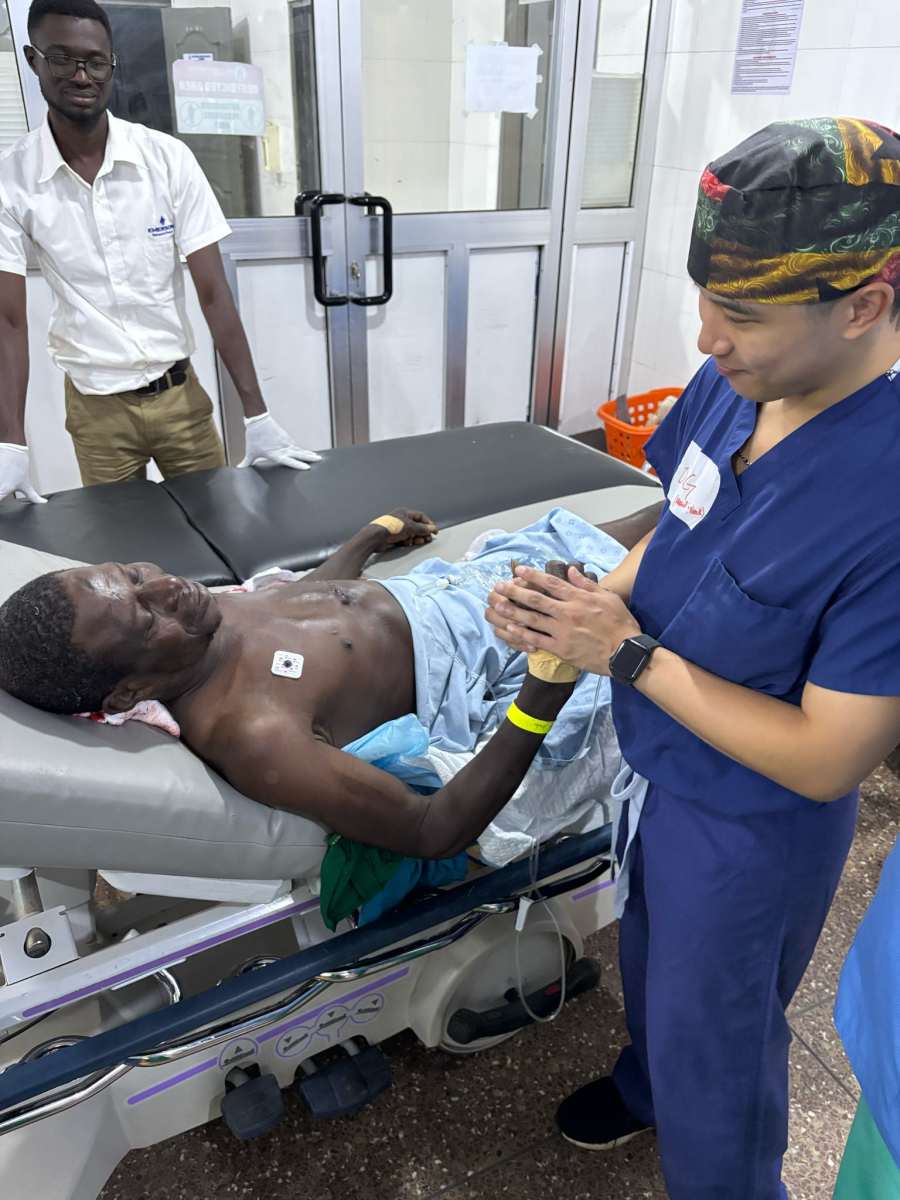

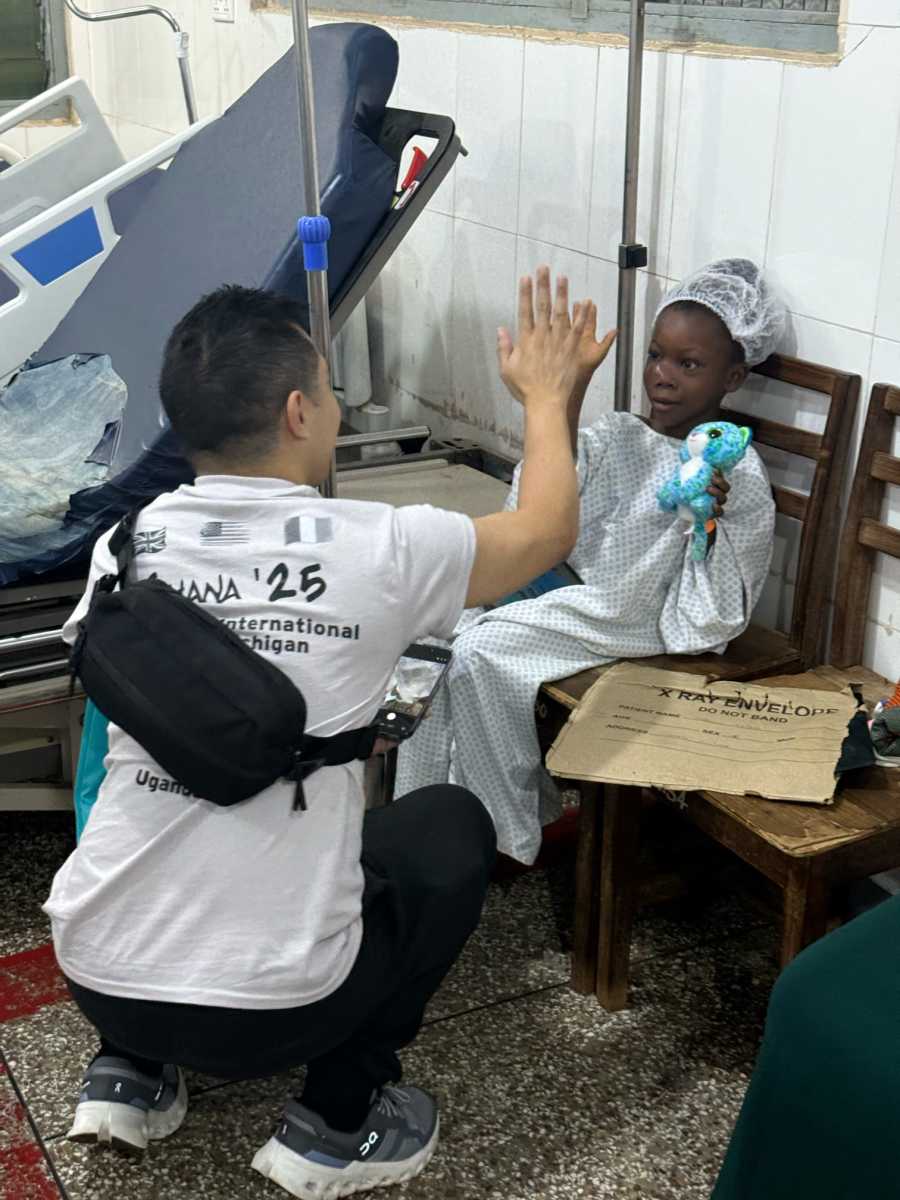




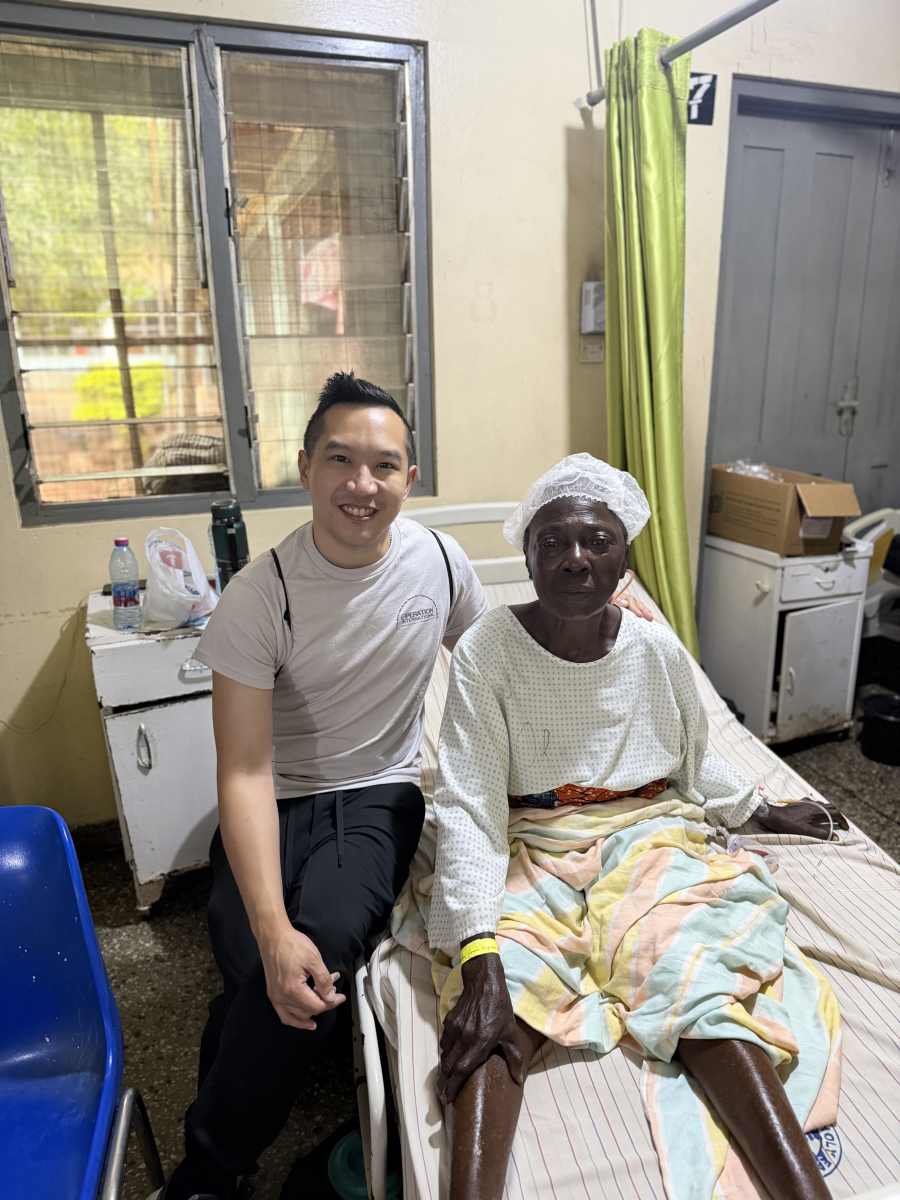


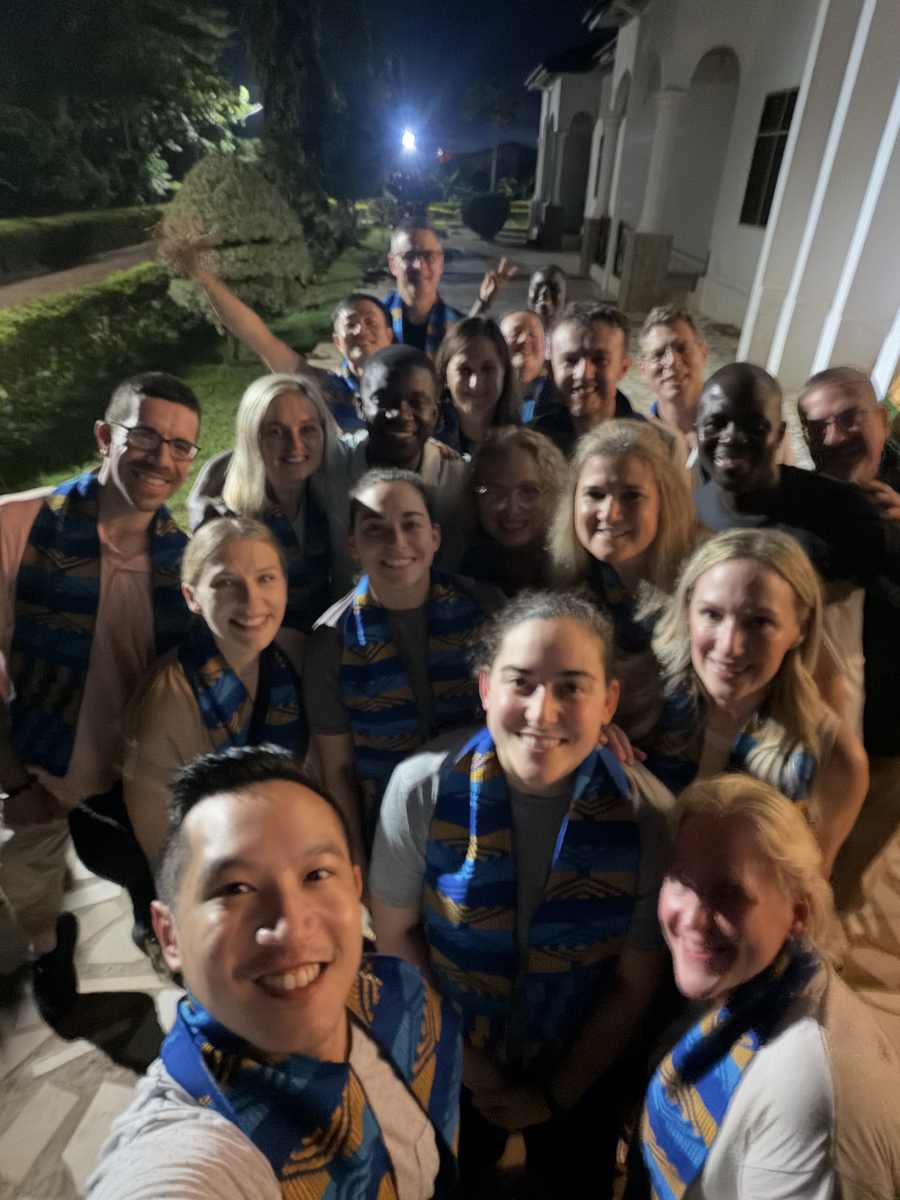




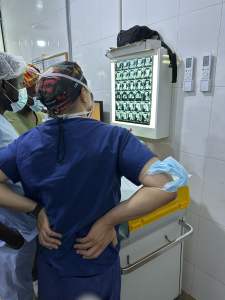

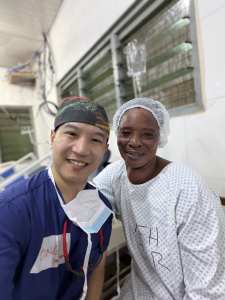




We are grateful to share the successful completion of our recent surgical mission trip to Holy Family Hospital in Techiman, Ghana. This mission brought together a dedicated team of surgeons, nurse anesthetists, nurses, and support staff, united in the shared goal of delivering compassionate, high-quality care to underserved patients in the region.
Over the course of the mission, we evaluated over 100 patients and performed 94 surgeries over five days. My role on the team was head and neck surgeon, with a particular focus on care of patients with large goiters and salivary gland tumors. Each case was managed with precision and empathy, often under challenging conditions, yet with unwavering commitment to patient safety and long-term outcomes. Many of these patients have been leaving with disfiguring growths on the face and neck, and I am grateful that they put their trust in me.
The mission placed a strong emphasis on collaboration and knowledge exchange. We worked closely with local medical professionals, providing hands-on training and surgical education, to support sustainable surgical capacity building in the region. The enthusiasm and engagement of the local healthcare teams were truly inspiring and reinforced the importance of long-term partnerships.
The gratitude shown by patients and their families was deeply moving and reminded us of the profound impact of accessible surgical care. Many of the patients we treated had been living with significant pain, disfigurement, or functional limitations for years—often without hope of treatment. Being able to restore dignity, improve quality of life, and, in some cases, provide life-saving interventions was both humbling and rewarding.
We return home inspired, changed, and motivated to continue this vital work. Our heartfelt thanks go to our local partners in Techiman, the hospital leadership and staff, and the community for their trust, collaboration, and warm hospitality. We also extend our deep appreciation to the donors and supporters who made this mission possible.